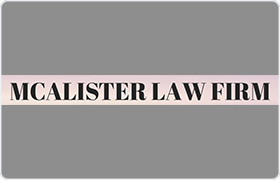Ocean Springs White Collar Crime Lawyer, Mississippi
Sponsored Law Firm
-
 x
x

Click For More Info:
-
McAlister Law Firm, LLC
419 Security Square Gulfport, MS 39507» view mapCriminal Defense Law Your Gulf Coast Attorney
An Attorney with Nineteen years of court room experience. Licensed in the States of Mississippi and Alabama.
228-265-5190
Jennifer Sekul Harris
Estate, Divorce & Family Law, White Collar Crime
Status: In Good Standing Licensed: 26 Years
Jimmy McGuire
Family Law, Traffic, Personal Injury, White Collar Crime
Status: In Good Standing Licensed: 52 Years
 Carolyn McAlister Gulfport, MS
Carolyn McAlister Gulfport, MS
